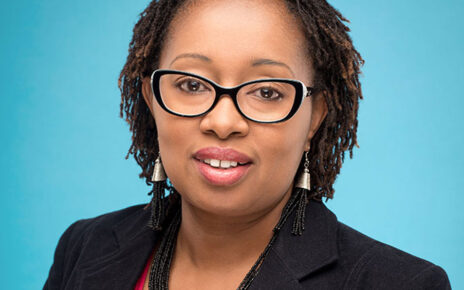Kenyan woman Wanggy Ivvahh has expressed her readiness to raise awareness about facial and body hair in women, despite the existing stigma and lack of information surrounding this condition. In an interview with Mpasho, Wanggy shared her personal journey, stating, “I first noticed changes when I was in Primary school, and now I’m 30 years old. Initially,
I had the typical hair that teenagers have. However, when I entered high school, the hair near my navel became thicker and more prominent. It was during this time that I also began developing facial hair, although it was sparse. I would pluck them, but I soon realized that they grew back even thicker, prompting me to resort to shaving.”
After completing high school, Wanggy found that her facial and chest hair had grown to a point where it could no longer be ignored. Curiously, she observed, “No one in my family has this condition, so I took it upon myself to research women with excess body hair. I discovered that only Caucasian women had come forward to discuss their experiences living with facial and body hair.” Wanggy believes that since no one in Kenya has spoken openly about this issue, it is her responsibility to do so in order to raise awareness and inform people that she is a woman, not a man—it’s just that she has facial and chest hair.
Wanggy also noticed that those who have spoken out about their experiences now enjoy the freedom to move about without being harassed or ridiculed. Tired of constantly shaving and hiding, she aspires to walk freely and create awareness about this matter. By doing so, she hopes to empower other young girls who may be facing similar challenges, encouraging them to embrace their unique selves, knowing that they are beautifully and wonderfully created.
Moreover, Wanggy revealed a personal struggle she encountered as a mother. “By the way, I am a mother, and many people believed I couldn’t conceive due to my condition. Some family members even confessed that they had feared I would be unable to bear children because of my facial hair. Fortunately, I learned of their concerns only after I had welcomed my child. If they had told me earlier, it would have deeply hurt and discouraged me.” Wanggy’s workplace has thankfully accepted her just as she is, without any issues.
In summary, Wanggy Ivvahh, a courageous Kenyan woman, is determined to break the silence surrounding facial and body hair in women. Despite the societal stigma and lack of awareness in her country, she aims to create a platform for discussion and understanding. Wanggy’s journey towards self-acceptance serves as an inspiration, reminding us all that we should embrace our unique qualities and advocate for a more inclusive society.



